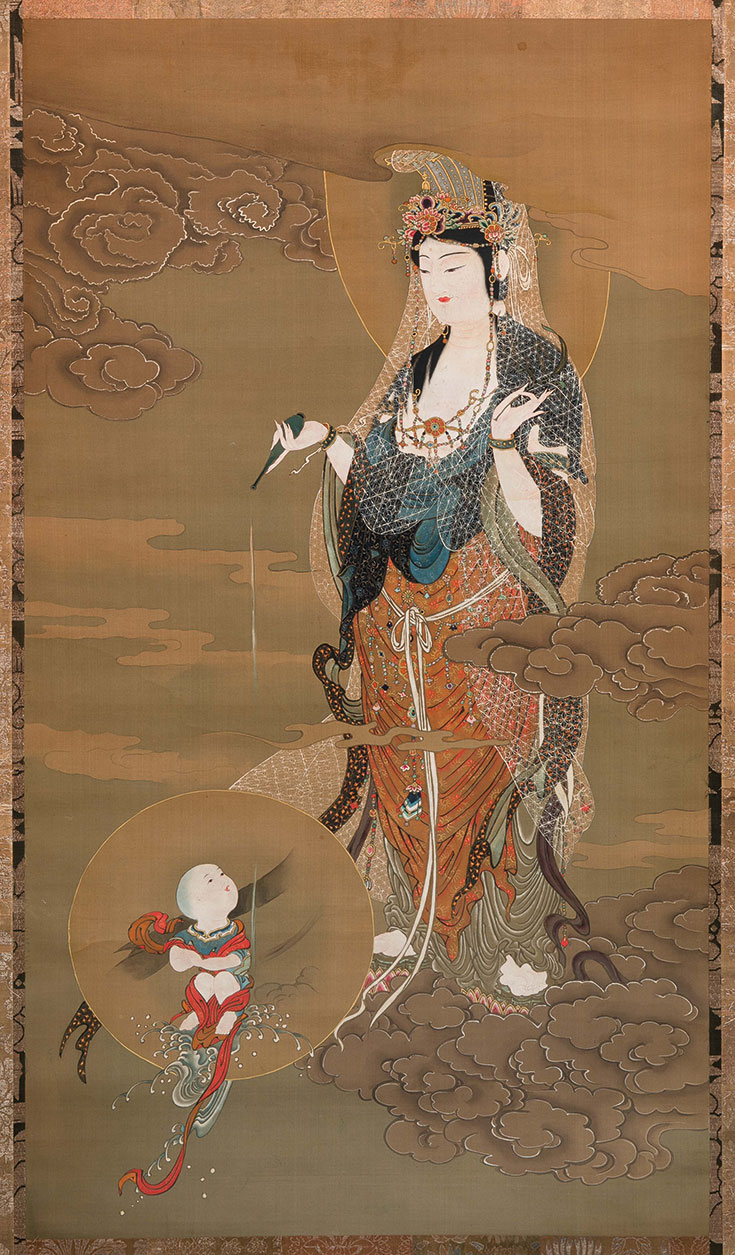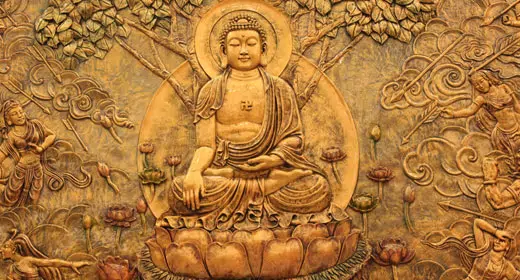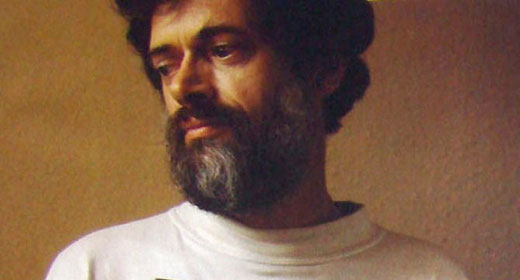by Kaira Jewel Lingo: At the core of Mahayana Buddhism, explains Kaira Jewel Lingo, is bodhichitta, the bodhisattvas’ enlightened aspiration to save all sentient beings…

Mahayana Buddhism shares with all schools of Buddhism an understanding of enlightenment as the experience of freedom from all mental defilements and illusion and of touching reality as it is. The Mahayana diverges from earlier schools in its emphasis on bodhichitta, the bodhisattva path, and each person’s inherent buddhanature as central to enlightenment.
The Sanskrit word bodhichitta is composed of bodhi, which means “awake,” and citta, which is often translated as “mind” but refers more broadly to “mind-heart.” So we could say that bodhichitta means “the mind-heart of awakening.”
Bodhichitta is the aspiration to awaken and help others—to free them from suffering and bring them happiness. It is a tremendous source of energy for personal and collective awakening. Without this aspiration, we would not be drawn to spiritual practice or toward social transformation. It’s what led Prince Siddhartha on his path of awakening for the benefit of countless beings. It is what motivated those like Harriet Tubman, Gandhi, and Nelson Mandela to dedicate their lives to social justice and healing.
In the Mahayana tradition, someone who gives rise to bodhichitta is considered to be a bodhisattva. Sattva means “sentient being” and bodhi meaning “enlightenment,” so a bodhisattva is a being who is “bound for enlightenment.” Their sole purpose is the universal aspiration to end suffering for all sentient beings, and they vow to delay their own enlightenment until all beings are liberated.
This is one of many versions of the bodhisattva vow:
The many beings are numberless; I vow to save them.
Greed, hatred, and ignorance rise endlessly;
I vow to abandon them.
Dharma gates are countless; I vow to wake to them.
Buddha’s way is unsurpassed; I vow to embody it fully.
In the Mahayana tradition there are ten stages, known as paramitas, or transcendent perfections, that a bodhisattva must develop on the path to awakening. The first six paramitas are generosity (dana), moral virtue (sila), endurance or patient acceptance (ksanti), vigor or energy (virya), meditation (dhyana), and wisdom (prajna). Four additional paramitas express how the fruits of awakened wisdom manifest in the world: skill in means (upaya-kausalya), vow or determination (pranidhana), spiritual power (bala), and the perfection of knowledge (jnana).
The earth-shattering insight the Buddha realized when he attained enlightenment under the Bodhi Tree was that all beings are of the same nature as he. In Mahayana Buddhism, this is known as buddhanature.
The Buddha saw that awakening is the true nature of all beings. We just don’t know it because our buddhanature is covered over by our delusions and ignorance. This is a hopeful teaching that can instill great confidence in us: each and every one of us has the capacity to awaken. It is our birthright. No matter what we have done or how we have lived in the past, we all have the ability to attain full awakening and transcend suffering. The Buddha is in us.
We can learn to cultivate and trust our innate goodness, our natural compassion and insight. Buddhanature is always there within each of us, and by gradually uprooting the defilements of greed, hatred, and ignorance it will shine and manifest fully.
As Thich Nhat Hanh teaches, “big” or “final” enlightenment is made up of many small moments of enlightenment. Our journey to deeper and deeper wisdom and compassion is made one step at a time.










































